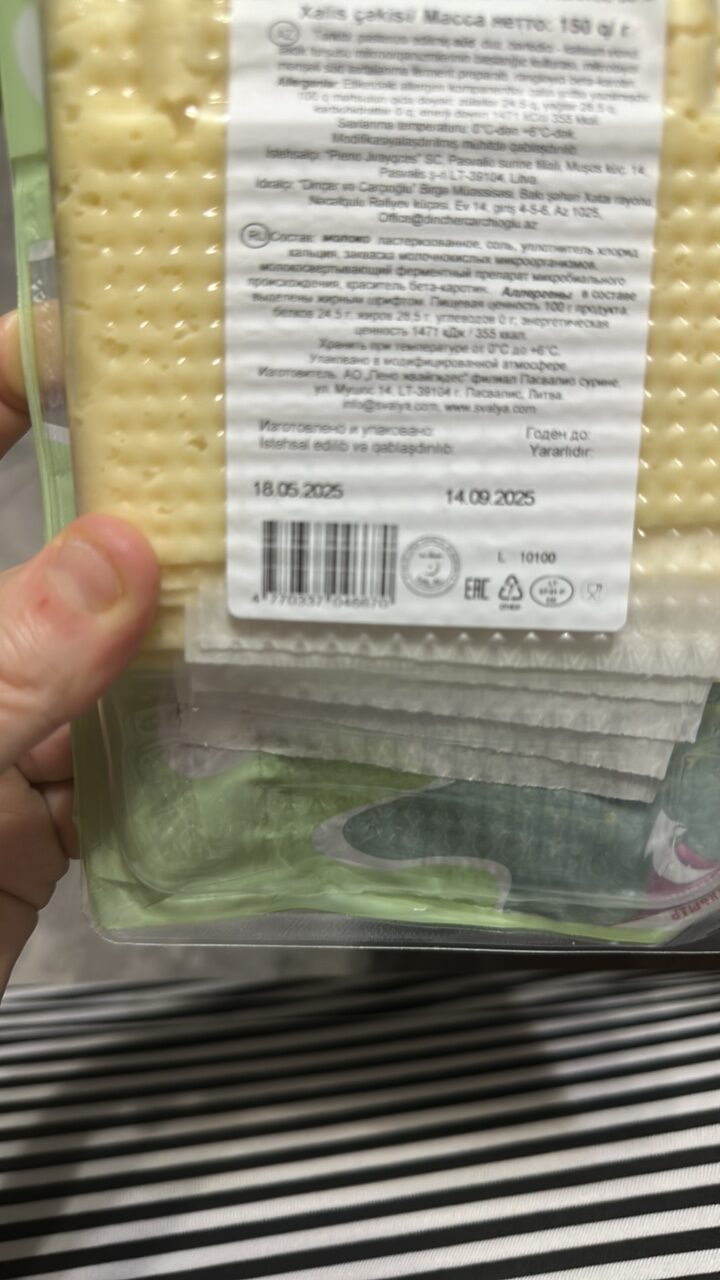
Barcode: 4770337046670
Xalis çəkisi
HALAL
📝 Reason: Based on the listed ingredients and interpretation of their likely origins, the product contains primarily Halal substances like milk, water, salt, and beta-carotene. However, the term ‘preparat’ is ambiguous and could refer to enzymes or microbial preparations, which may be animal-derived and thus Doubtful unless a Halal certification is present, as per Islamic guidelines (Quran 5:3) and halal advisory boards like IFANCA. Since one ingredient is deemed Doubtful, the overall product is classified as Doubtful per provided strict rules.
📄 Certificates: Vegetarisch
Ingredients:
Details
Understanding the Halal Status of Xalis çəkisi
Xalis çəkisi is a product that has garnered interest for its potential Halal certification. Given its diverse ingredients, we will explore what makes this product fit for Halal consumption. According to Islamic dietary laws, the process of determining whether a product is Halal involves a thorough examination of its ingredients and sources.
Halal Ingredients Breakdown
The ingredients for Xalis çekisi include:
- Molek: Likely refers to ‘milk’. Milk is Halal as long as it is not mixed with Haram (forbidden) substances. You can find more details on IFANCA.
- Pasterizasiya: This term means ‘pasteurization’, a process used in treating milk. Pasteurization is Halal by itself, as discussed on Euro Food Chemistry.
- Sol: This is simply ‘salt’, which is Halal unless combined with any Haram substances. For a detailed guideline, check here.
- Suyu: This means ‘water’. Pure water is universally recognized as Halal.
- Tursu: Referring to ‘ferment’ or ‘acidulant’, tursu is generally Halal if it is not made with alcohol. More can be discovered on Halal Foundation.
- Mikroorqanizm: This means ‘microorganism’. Microbial cultures in dairy are usually Halal unless derived from Haram sources. Detailed information can be found at Halal HMC.
- Preparat: This ingredient is ambiguous. It can refer to enzymes or preparations, and its animal origin makes it Doubtful without Halal certification. As per Halal Guide, clarification on this ingredient is paramount.
- Mikrobiol: This stands for ‘microbial’. Typically, these are Halal unless modified with Haram genes. For clarity, see Halal Watch World.
- Krasitel beta-karotin: Refers to ‘colorant beta-carotene’. Since it is plant-based, it is considered Halal, with more information available on Food Additives.
Summary of Halal Status
While the majority of the ingredients in Xalis çəkisi are Halal, the presence of ‘preparat’ raises questions regarding its halal status. Under Islamic guidelines, including Quran 5:3, products with ambiguous ingredients require certification to be safe for consumption by practicing Muslims. Thus, the overall classification of Xalis çəkisi remains Doubtful until a Halal certification is presented.
Brand and Categorization Context
Although the product lacks specific branding and certification credentials beyond a vegetarian marker, it’s crucial for consumers to approach it with caution until more information is made available. Given its ingredients, individuals who strictly adhere to Halal dietary practices should seek confirmation of Halal certification or consult Halal advisory boards to ensure adherence to dietary laws.
In conclusion, while Xalis çəkisi exhibits many Halal characteristics, uncertainty around the ingredient ‘preparat’ necessitates a cautious approach. For those looking for a safe, Halal certified option, always prioritize products with clear, verified certifications.
